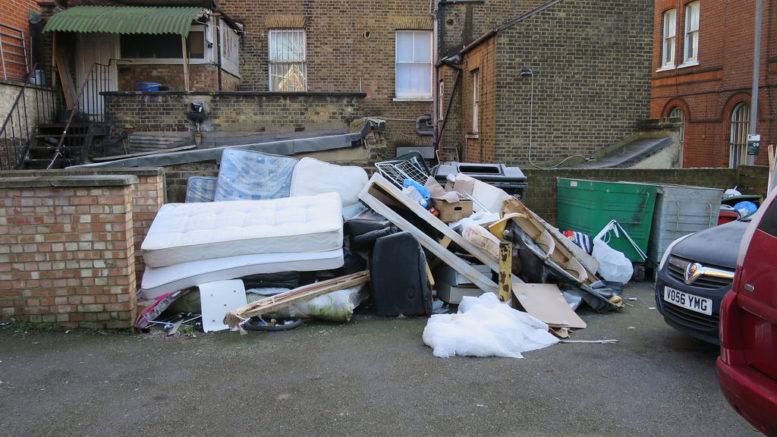Landlords across the UK have hit back at a controversial move by Sefton Council, which is threatening to fine property owners up to £400 if their tenants are caught fly-tipping or failing to manage waste correctly. The National Residential Landlords Association (NRLA) has branded the proposal “incredible” and “unfair,” calling it another example of disproportionate local authority overreach.
The row erupted after Sefton Council named landlords among the “culprits” contributing to the borough’s ongoing waste problems. Local cabinet members have vowed to “come after” property owners, even if they are not the ones dumping rubbish.
Council claims landlords are partly to blame for street waste
The dispute centres on Sefton Council’s new hardline approach to littering and illegal dumping in the Merseyside borough. In a statement issued last week, Councillor Peter Harvey, cabinet member for cleansing and street cleaning, said: “Fly-tipping is selfish, anti-social, potentially hazardous, and illegal. We will not tolerate it in Sefton, and we will come after culprits-and this includes landlords not meeting their requirements to their tenants and to the Borough.”
Harvey added that many landlords, under local licensing rules, must “provide support to tenants,” such as offering adequate bin storage or educating renters about collection schedules. The council’s stance implies that if these conditions aren’t met, or if tenants fail to comply, landlords could be fined.
NRLA: Landlords not liable for tenants’ personal behaviour
Ben Beadle, Chief Executive of the NRLA, didn’t mince his words in response. Taking to social media, he said: “I’ve no issue with local authorities properly tackling fly-tipping. I see it in the magistrates’ court routinely-and frankly, this sort of selfish behaviour should attract the proverbial book being thrown at the perpetrators.”
But Beadle rejected the idea that landlords should be held responsible for their tenants’ rubbish. “I am incredulous that a landlord is responsible for the tenants’ rubbish-making a further mockery of overreaching licensing regimes,” he said.
“Sure, provide appropriate bins [and other measures] but other than that, we are all responsible for our own behaviour. Why a landlord should carry the can is beyond me-other than it being an easy source of revenue once again, for overzealous local authority workers.”
He went on to call the fines “a novel idea for raising cash,” and added: “Why not issue fines for non-compliant renters who directly cause said fly-tipping?”
Landlords call for common sense and fairness in enforcement
Landlords across the region and beyond have echoed Beadle’s frustration, saying the policy penalises responsible property owners for behaviour they cannot control. One Merseyside-based landlord, who preferred not to be named, told us: “We provide every tenant with the bins, the leaflets from the council, and reminders about collection days. But if someone chooses to dump a mattress at 2am, what are we meant to do-stand guard 24/7?”
Some landlords worry the policy sets a dangerous precedent. If councils can fine landlords for waste their tenants create, what’s next-fines for tenants playing loud music or falling behind on recycling?
Industry campaigners argue that while landlords must maintain decent property conditions, holding them liable for tenants’ conduct outside the home is unreasonable. Especially when landlords are already navigating tightening regulations, higher mortgage rates, and delays in court processes related to possession claims.
Will the council listen-or double down?
Sefton Council has yet to respond publicly to the backlash. But the issue is unlikely to go away quietly. With increasing pressure on landlords to absorb the costs and responsibilities of others, the NRLA and its members are demanding a fairer approach.
For now, the spotlight is on Sefton-but other councils may be watching closely.
As Beadle summed it up: “Landlords are doing their part. We cannot be scapegoats for every anti-social action a tenant might take. Councils should enforce laws against the individuals responsible-not use landlords as cash machines.”
Whether this dispute marks the start of a wider policy trend-or a one-off misstep-remains to be seen. But landlords across the country will be hoping for clarity, fairness, and a much-needed dose of common sense.








